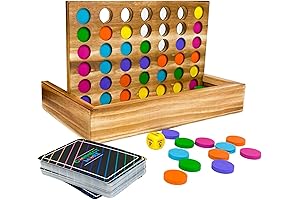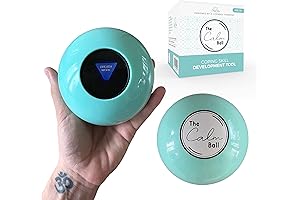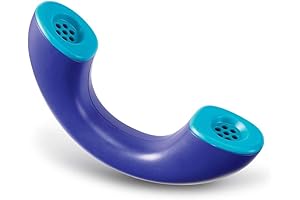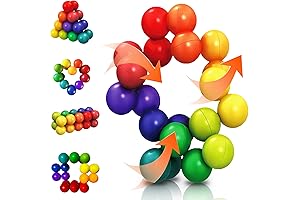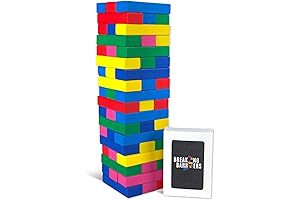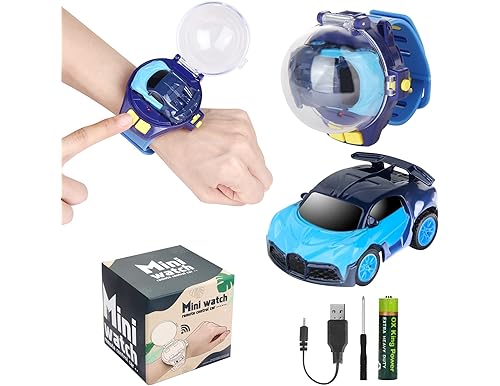· board games · 12 min read
Best Therapy Tools to Enhance Communication and Emotional Well-being
Discover the top therapy tools designed to improve social skills, regulate emotions, and foster meaningful relationships. These tools are perfect for children, teens, and adults seeking to enhance their communication and overall well-being.
Therapy tools are increasingly becoming essential aids in improving communication skills, regulating emotions, and fostering meaningful relationships. Whether you're looking to improve your social interactions, manage stress, or overcome emotional challenges, there are numerous therapy tools available to suit your needs. In this article, we will introduce you to the best therapy tools on the market, providing detailed insights into their features, benefits, and how they can empower you to live a more fulfilling life.
Overview

PROS
- Multiplayer up to 6 players, encouraging teamwork and communication
- 4 in a row connect game format promotes strategy and problem-solving
CONS
- Requires a physical space to play
- May not be suitable for all ages or skill levels
Connect More is a multiplayer social skills game that provides a fun and engaging way to foster conversation and relationship building. With the ability to connect up to 6 players, it's a great tool for group therapy, family gatherings, or even just a fun night in. The 4 in a row connect game format adds an element of strategy and problem-solving, making it a great way to develop critical thinking skills as well.
One of the things that makes Connect More so unique is that it's not just a game. It's also a therapeutic tool that can be used to address a variety of social skills challenges, such as communication, teamwork, and problem-solving. The game can be used to help children and adults learn how to interact with others in a positive and productive way. It can also be used to help people with autism or other developmental disabilities develop their social skills. Connect More is a fun and engaging way to help people of all ages develop their social skills. Whether you're looking for a game to play with your family or a therapeutic tool to help your clients, Connect More is a great option.

PROS
- Empowers kids to identify and manage emotions through engaging gameplay.
- Provides a fun and interactive way to learn Cognitive Behavioral Therapy (CBT) techniques.
CONS
- May not be suitable for very young children.
- Requires adult supervision for younger players.
da Vinci's Room Don't Go Bananas is an innovative therapy game designed to help children master their emotions. Grounded in Cognitive Behavioral Therapy (CBT) principles, this engaging game empowers kids to identify, understand, and effectively manage strong emotions, fostering their emotional intelligence and resilience.
Through a series of fun challenges and interactive scenarios, children learn practical CBT techniques to cope with difficult emotions, such as anger, frustration, and anxiety. They'll explore emotion-triggering situations, practice relaxation techniques, and develop strategies for positive self-talk. This game-based approach makes learning CBT principles enjoyable and accessible for young minds.

PROS
- Facilitates effective anger management through engaging sensory play.
- Empowers individuals to identify and regulate their emotions healthily.
CONS
- Not suitable for individuals with severe anger issues who may require professional intervention.
- Durability may vary depending on usage and handling.
Harness the power of the Calm Ball, a game-changing therapeutic tool that empowers individuals of all ages to manage anger effectively. This ingenious ball provides a tactile and engaging outlet for expressing and regulating emotions, fostering self-awareness and emotional resilience.
Crafted with meticulous attention to detail, the Calm Ball boasts sensory-stimulating features that invite users to squeeze, roll, and manipulate it. By engaging multiple senses, the ball helps individuals identify and articulate their emotions, promoting emotional regulation. Its portability makes it an ideal companion for on-the-go moments when stress and anger arise.

PROS
- Promotes phonemic awareness, a crucial foundation for reading and writing
- Versatile tool for speech therapy, autism learning, dyslexia support, and ESL teaching
CONS
- Requires adult supervision for younger children
- May not be suitable for all individuals with speech impairments
The hand2mind Phoneme Phone is an invaluable tool for speech therapists, educators, and parents alike. Its innovative design empowers individuals with speech delays or disorders, dyslexia, or English as a second language to enhance their communication skills. The phone's interactive features foster phonemic awareness, a foundational element for developing literacy.
The Phoneme Phone features a user-friendly interface with 44 colorful buttons, each representing a distinct phoneme, or sound unit. This allows users to practice articulation, discrimination, and blending of sounds in a fun and engaging manner. The phone also includes a variety of engaging games and activities that make learning interactive and motivating.

PROS
- Encourages open communication within families and among teenagers.
- Provides a framework for addressing emotional and social challenges through CBT techniques.
CONS
- May not be suitable for individuals with severe mental health conditions.
- Requires a dedicated time commitment for gameplay.
ARTAGIA is an innovative therapy tool designed to facilitate meaningful conversations and improve social skills. With its focus on Cognitive Behavioral Therapy (CBT) techniques, this game provides a structured platform for exploring emotions, challenging negative thoughts, and developing coping mechanisms. Through engaging activities and thought-provoking questions, ARTAGIA empowers individuals and families to communicate more effectively, understand perspectives, and build stronger relationships.
One of the core strengths of ARTAGIA lies in its ability to create a safe and supportive environment for discussing sensitive topics. The game prompts players to share their thoughts, feelings, and experiences in a non-judgmental space. It encourages active listening, empathy, and mutual respect, fostering a sense of connection and understanding. Additionally, the CBT techniques employed in ARTAGIA help individuals recognize and challenge unhelpful thought patterns, develop healthier coping strategies, and improve problem-solving abilities.

PROS
- Provides practical, easy-to-use exercises for stress reduction and self-discovery.
- Encourages introspection and self-reflection through guided questions.
- Versatile for use in meditation, mindfulness, yoga, and self-care practices.
- Ideal for personal use or as a thoughtful gift for loved ones.
CONS
- May not be comprehensive enough for experienced practitioners seeking advanced techniques.
- Relies on self-motivation and consistency for effective results.
The Allura & Arcia Empowering Self Care Questions deck is an excellent tool for managing stress and promoting self-care. Its 52 cards feature thoughtful questions designed to guide introspection and mindfulness. Whether you're practicing meditation, yoga, or simply seeking inner calm, these cards provide a structured approach to self-discovery and stress reduction. The exercises are practical, engaging, and suitable for individuals of all levels.
The cards cover a range of topics, encouraging you to reflect on your emotions, beliefs, and behaviors. The prompts are thought-provoking and help you gain a deeper understanding of yourself. They also foster gratitude and self-compassion, essential elements for a balanced and fulfilling life. While the cards may not provide advanced techniques for seasoned practitioners, they offer a solid foundation for beginners and those seeking a simple yet effective way to incorporate mindfulness into their daily routine. Overall, the Allura & Arcia Empowering Self Care Questions deck is a valuable resource for anyone looking to enhance their self-care practices and promote mental well-being.

PROS
- Features a comprehensive range of evidence-based coping mechanisms.
- Suitable for individuals of all ages and backgrounds, including teens and adults.
CONS
- Requires self-discipline and consistent practice for optimal results.
The 52 Essential Coping Skills Flash Cards stand out as an invaluable resource for those seeking to enhance their ability to navigate stress and anxiety. These cards are expertly crafted by a Harvard educator, ensuring their foundation in well-established psychological principles.
Each card presents a distinct coping skill, offering clear instructions and practical examples to facilitate immediate implementation. The cards encompass a wide array of techniques, empowering users to tailor their self-care approach to their individual needs and preferences. Whether you're grappling with stress, anxiety, or simply seeking to bolster your resilience, these cards provide a lifeline of support and guidance.

PROS
- Stimulates tactile and fine motor skills, fostering focus and improving concentration.
- Provides soothing and stress-reducing effects, creating a sense of calm and tranquility.
- Portable and compact, making it an ideal companion for home, school, or on-the-go fidgeting needs.
- Durable and long-lasting, ensuring countless hours of sensory engagement.
- Recommended by therapists and educators for children with autism, ADHD, and other sensory processing challenges.
CONS
- Some toys may be too small for younger children, requiring adult supervision.
- Durability may vary depending on individual usage patterns.
Discover a world of therapeutic delight with these captivating Sensory Fidget Toys! Specially designed for kids and toddlers, these engaging toys offer a symphony of sensory experiences that ignite focus, regulate emotions, and bring about a sense of serenity. Each toy is a tactile masterpiece, crafted to stimulate fine motor skills, enhance dexterity, and provide a calming outlet for restless energy.
These fidget toys are the perfect travel companions, ensuring tranquility on long journeys or during moments of restlessness. Their compact size makes them easy to carry in backpacks or pockets, so kids can enjoy sensory stimulation wherever they go. Whether it's fiddling with the calming fidget ball, squeezing the stress-reducing grape ball, or manipulating the colorful pop tubes, these toys provide a sensory haven that helps children regulate their emotions and stay focused.

PROS
- Encourages meaningful conversations and open communication
- Promotes relationship building and social development
- Fun and engaging game format makes learning enjoyable
- Supports children and adults in developing social skills
CONS
- Not suitable for very young children
- May not be appropriate for individuals with severe social difficulties
You Know Social Skills Games and Therapy Tools is an innovative and engaging game designed to help children and adults develop their social skills. The game features a variety of activities that promote meaningful conversations, encourage active listening, and build empathy. By playing this game, individuals can improve their communication skills, learn to interact with others in a positive and respectful manner, and build lasting relationships.
The game is well-suited for use in schools, therapy settings, and at home. It is a valuable resource for educators, therapists, parents, and anyone else who wants to support the social development of individuals. You Know Social Skills Games and Therapy Tools is a fun and effective way to learn and practice social skills, making it an essential tool for anyone looking to improve their communication and interpersonal relationships.

PROS
- Empowering therapeutic tool for kids to explore and manage emotions
- Interactive games foster social skills development through role-playing and discussion
CONS
- May require parental guidance or supervision for younger children
- Additional resources or strategies may be needed for comprehensive emotional support
Breaking Barriers Down is an engaging and educational therapy tool designed to help children understand and regulate their emotions. Through a series of interactive games and activities, kids can explore the complexities of feelings such as anger, sadness, fear, and joy. This playful approach allows children to process their emotions in a safe and supported environment.
The game's emphasis on social skills development is particularly noteworthy. Role-playing and discussion-based activities encourage kids to express themselves, communicate effectively, and develop empathy for others. This makes Breaking Barriers Down a valuable resource for parents, educators, and therapists seeking to enhance children's social and emotional well-being.
Therapy tools can provide invaluable support in enhancing communication skills, regulating emotions, and fostering meaningful relationships. From social skills games to coping skills cards, there's a wide selection of tools available to suit your specific needs. These games and activities are designed to create a fun and engaging environment for learning, development, and personal growth. Whether you're a child, teen, or adult, incorporating therapy tools into your life can significantly enhance your overall well-being and empower you to thrive in social and emotional situations.
Frequently Asked Questions
What are the benefits of using therapy tools?
Therapy tools offer numerous benefits, including improved communication skills, enhanced emotional regulation, increased self-awareness, reduced stress levels, and fostered meaningful relationships.
Who can benefit from using therapy tools?
Therapy tools are beneficial for individuals of all ages, including children, teens, and adults. They can be especially helpful for those looking to improve their social skills, manage stress, or overcome emotional challenges.
How do I choose the right therapy tool for my needs?
When selecting a therapy tool, consider your specific needs and preferences. Look for tools that align with your goals, whether it's improving communication, managing emotions, or enhancing self-awareness.
How often should I use therapy tools?
The frequency of using therapy tools varies depending on your individual needs and the specific tools you choose. Some tools can be used daily, while others may be used as needed.
Where can I find therapy tools?
Therapy tools are widely available online and in retail stores. You can also consult with a healthcare professional or therapist for recommendations.
